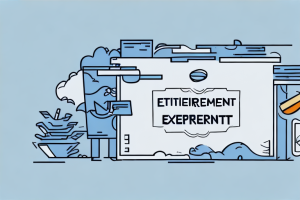Retirement is often seen as a time of relaxation and enjoying the fruits of one’s labor. However, it also comes with its fair share of financial challenges. As individuals transition from a steady income to relying on their retirement savings, careful planning becomes crucial to ensure a comfortable and financially secure future. One of the key aspects of retirement planning is understanding the expenses that retirees commonly face. In this article, we will take an in-depth look at the biggest expense for most retirees and explore the various factors that contribute to this significant financial burden.
Understanding the Financial Challenges of Retirement
Retirement brings about a unique set of financial challenges that individuals must navigate. As individuals bid farewell to their working years, they often transition from a predictable income to relying on sources such as pensions, retirement accounts, or social security. This change in financial structure can lead to a significant impact on their lifestyle and budget.
One of the primary financial challenges retirees face is the need to cover their expenses without a steady paycheck. It is vital for retirees to have a clear understanding of their cash flow, expenses, and sources of income to effectively manage their finances during retirement. By doing so, they can ensure they have enough funds to meet their day-to-day needs, unexpected expenses, and maintain a comfortable standard of living.
Another financial challenge that retirees often encounter is the rising cost of healthcare. As individuals age, their healthcare needs tend to increase, and medical expenses can become a significant burden on their finances. Retirees must consider the cost of health insurance, prescription medications, doctor visits, and potential long-term care expenses when planning for retirement.
In addition to healthcare costs, retirees may also face the challenge of inflation eroding the purchasing power of their savings. Over time, the cost of goods and services tends to increase, which means that retirees may need to adjust their budget and investment strategies to keep up with inflation. It is crucial for retirees to have a diversified investment portfolio that can provide a hedge against inflation and generate enough returns to sustain their lifestyle.
Analyzing the Top Expenses Faced by Retirees
Retirees experience a variety of expenses during their golden years. From healthcare costs to housing and transportation, there are numerous financial obligations that retirees must consider. However, one expense often takes center stage and has the potential to significantly impact a retiree’s financial well-being.
One of the top expenses that retirees face is long-term care. As individuals age, the likelihood of needing assistance with daily activities such as bathing, dressing, and eating increases. Long-term care services, whether provided at home or in a facility, can be quite costly. It is important for retirees to plan ahead and consider options such as long-term care insurance to help cover these expenses.
Unveiling the Primary Cost Burden for Most Retirees
When it comes to the biggest expense for most retirees, healthcare often takes the spotlight. As individuals age, healthcare requirements tend to increase, resulting in higher medical expenses. From routine check-ups to specialized treatments, the cost of healthcare can quickly add up and place a substantial burden on retirees.
Medications, in particular, can significantly impact a retiree’s budget. The rising cost of prescription drugs can make it challenging for retirees to afford the medications they need to maintain their health. Insurance coverage and out-of-pocket expenses further compound the financial strain.
In addition to healthcare costs, housing expenses also pose a significant burden for many retirees. As individuals age, their housing needs may change, requiring modifications or downsizing to accommodate mobility issues or reduce maintenance responsibilities. These changes often come with associated costs, such as home renovations or moving expenses, which can strain a retiree’s budget.
Furthermore, another major cost for retirees is long-term care. As individuals age, the likelihood of needing assistance with daily activities, such as bathing, dressing, or meal preparation, increases. Long-term care services, whether provided at home or in a facility, can be expensive and may not be fully covered by insurance. Planning for long-term care expenses is crucial to ensure retirees can afford the assistance they may need in the future.
The Financial Struggles of Retirees: A Closer Look at Expenses
Beyond healthcare, retirees also have other crucial expenses to consider. Housing costs, including mortgage or rent, property taxes, and home maintenance can be a significant financial burden. Transportation expenses, such as car payments, insurance, maintenance, and fuel costs, also need to be factored in. Additionally, daily living expenses such as groceries, utilities, and entertainment can impact a retiree’s budget.
It’s worth noting that while these expenses are significant, they may vary depending on an individual’s lifestyle and location. Retirees living in high-cost areas or with substantial debt may face additional financial challenges compared to those living in more affordable regions.
Another important expense that retirees need to consider is healthcare. As individuals age, their healthcare needs tend to increase, leading to higher medical expenses. This includes costs for doctor visits, prescription medications, medical procedures, and long-term care. Medicare, the government health insurance program for retirees, helps cover some of these costs, but it may not cover everything. Retirees may need to budget for out-of-pocket expenses and consider supplemental insurance plans to ensure comprehensive coverage.
Breaking Down Retirement Expenses: What Takes the Biggest Chunk?
While healthcare expenses tend to be the primary concern for most retirees, it’s essential to consider other potential large expenses. Long-term care, for example, is an expenditure that often weighs heavily on retirees’ finances. Aging often comes with increased vulnerability and the need for assistance with daily activities. Long-term care, whether in a nursing home or through an in-home caregiver, can be a substantial expense that retirees must plan for.
Another significant expense to consider is taxes. Although retirees may benefit from certain tax breaks, depending on their income and deductions, they still need to factor in federal, state, and local taxes when budgeting for retirement. With proper planning and understanding of the tax implications during retirement, retirees can maximize their after-tax income and minimize unnecessary expenses.
Additionally, housing costs can also take a significant chunk of retirees’ expenses. Whether retirees choose to downsize, rent, or continue living in their current home, housing expenses such as mortgage payments, property taxes, insurance, and maintenance can add up. It’s crucial for retirees to carefully evaluate their housing options and budget accordingly to ensure they can comfortably afford their chosen living arrangement.
Pinpointing the Major Expenditure for Retirees: A Comprehensive Analysis
While healthcare undoubtedly takes the biggest chunk of retirees’ expenses, it’s essential to remember that each retiree’s situation is unique. Factors such as age, health condition, location, and lifestyle choices can significantly impact the distribution of expenses in retirement. Thus, it’s crucial for individuals approaching retirement to carefully assess their anticipated expenditures and develop a comprehensive financial plan tailored to their specific needs and circumstances.
One important aspect to consider when analyzing retirees’ major expenditures is the cost of housing. For many retirees, housing expenses can account for a significant portion of their budget. This includes mortgage or rent payments, property taxes, homeowners’ association fees, and maintenance costs. Retirees may also need to factor in potential renovations or modifications to their homes to accommodate their changing needs as they age.
Another significant expenditure for retirees is transportation. While some retirees may no longer have to commute to work, they still need to budget for transportation expenses such as car payments, insurance, fuel, and maintenance. Additionally, retirees who no longer drive may need to rely on alternative transportation options, such as public transportation or ridesharing services, which can also incur costs.
The Pivotal Expense that Impacts Retirees the Most
Considering the various expenses retirees face, healthcare remains the expense that impacts them the most. Retirees must plan diligently to cover their medical costs adequately. It’s crucial to explore healthcare insurance options and understand the coverage provided to mitigate potential financial stress. Furthermore, proactive health management, including healthy lifestyle choices and preventive care, can contribute to reducing healthcare expenses in the long run.
Revealing the Most Significant Cost for Individuals in Retirement
For retirees, healthcare expenses take center stage as the largest and most significant cost. It is crucial for individuals nearing or entering retirement to carefully evaluate their healthcare needs, anticipate potential costs, and plan accordingly. By doing so, retirees can alleviate financial stress and focus on enjoying their well-deserved retirement years.
The Costly Reality of Being a Retiree: Identifying the Largest Expense
As retirement approaches, individuals must confront the reality of the largest expense they are likely to face: healthcare. By acknowledging this financial burden and planning accordingly, retirees can secure their financial future and ensure they have the necessary resources to meet their healthcare needs effectively.
Unmasking the Primary Financial Concern for Most Retired Individuals
The financial concern that takes center stage for most retired individuals is undoubtedly healthcare. Navigating the complex landscape of healthcare costs and insurance can be daunting, but with proper planning and education, retirees can gain peace of mind. Seeking advice from financial professionals and exploring various healthcare options can help retirees make informed decisions and effectively manage their largest expense.
The Weighty Burden of Retirement Expenses: What Takes Center Stage?
When it comes to retirement expenses, healthcare undoubtedly takes center stage. Retirees must proactively prepare for this significant financial burden by assessing their healthcare needs, estimating potential costs, and creating a comprehensive plan. Furthermore, taking advantage of resources and programs available to retirees, such as Medicare and other healthcare assistance programs, can help alleviate the weighty burden of healthcare expenses.
Decoding the Biggest Outlay for Majority of Retirees
For the majority of retirees, healthcare expenses are the biggest outlay they face. Understanding the various components of healthcare costs, including insurance premiums, deductibles, co-pays, and prescription medications, is crucial. By diligently planning, exploring insurance options, and factoring in potential fluctuations in health, retirees can better manage their finances and ensure their healthcare needs are adequately met.
Understanding What Drains a Retiree’s Finances the Most
When it comes to what drains a retiree’s finances the most, healthcare expenses undoubtedly top the list. The rising costs of medical care, prescription drugs, and insurance premiums can place a considerable strain on retirees’ budgets. It is vital for individuals planning for retirement to carefully account for these expenses and develop a strategy to manage and minimize the financial impact.
The Elephant in the Room: Uncovering Retirees’ Greatest Expenditure
The largest and most significant expenditure that retirees often face is undoubtedly healthcare. While it may be the elephant in the room, acknowledging the impact of healthcare expenses is essential for retirees to effectively plan and secure their financial future. By addressing this crucial aspect and creating a comprehensive retirement plan that accounts for healthcare costs, retirees can navigate this financial challenge and achieve peace of mind in their golden years.
In conclusion, healthcare expenses stand as the biggest cost burden for most retirees. While other expenses such as housing, transportation, and daily living costs also require attention, it is crucial for individuals approaching retirement to prioritize and plan for their healthcare needs. By understanding the financial challenges of retirement and meticulously preparing for the largest expense, retirees can navigate their golden years with financial confidence and focus on enjoying the well-deserved fruits of their labor.



